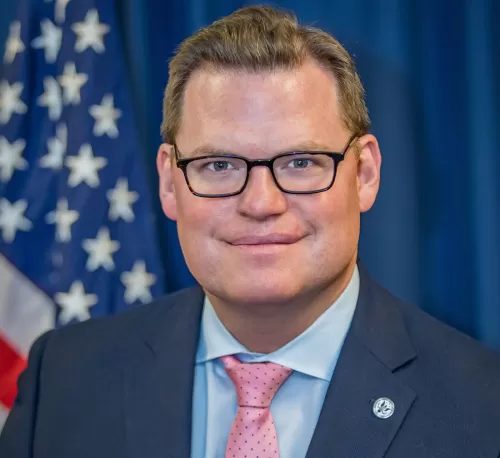NCUA Vice Chairman Kyle S. Hauptman
As Prepared for Delivery on June 16, 2022
Thank you, Robert and Shameka, for this report and all the work you and others have put into this. I imagine it feels good to work on a true improvement in the NCUA’s communications and customer service. This feedback survey, along with recording of exit exams, were one of my main priorities during my time at the NCUA. As you can imagine, it’s very gratifying to see this in action.
I certainly noted how quickly and eagerly everyone at NCUA jumped on this project and delivered. I suppose one reason that NCUA, and credit unions, immediately “got it” is because all of us already benefit from similar customer service feedback mechanisms in our daily life. Uber, DoorDash, TripAdvisor.
And we all know you haven’t been checked out of hotel for an hour before you get that email that says, “How was your stay? Click here to rate your experience.” Miscommunications get dealt with quickly, and there’s constant improvement on everyone’s part. It’s why the cars we use for Uber and other rideshare services are normally cleaner than old-school taxis. It’s not because the people have changed – many rideshare drivers used to drive cabs, and we, the passengers, haven’t changed – the Ubers are cleaner because after every single ride. Both the rider and passenger rate their experience, and, right there at the top of the Uber app, we are asked to rate the car’s cleanliness.
Those words are not chosen accidentally; they communicate priorities. Thus, Uber drivers keep cars cleaner, and they get the benefit of passengers being more conscientious in someone else’s vehicle.
In a similar vein, NCUA examiners are crucial to the success of this survey, since they will also fill out the survey and will have valuable insight into how we should tweak things in the future.
Today’s briefing on this outstanding new communication tool is, for me, partly the result of years of frustration. In my prior job on Capitol Hill, it was difficult to solve problems between regulated entities and their regulators. Why? Because people were afraid to speak directly to their regulator, partly because the regulator didn’t appear to be particularly interested in feedback. Constituents couldn’t not notice that the regulator wasn’t doing all the normal, modern mechanisms to ensure quality service. Calls were not “monitored for quality assurance.” There were none of the immediate feedback surveys that most organizations, including the regulated institutions, utilized daily to improve customer service.
In most of the cases when I was on the Hill, the regulator felt everything was working just fine while the regulated institution was too afraid to tell them otherwise. When we on Capitol Hill got calls from constituents about their regulators, we were usually told “please don’t tell my regulator my name.” Constituents noticed things such as regulators punishing companies for not recording client calls, yet the same regulators refuse to allow themselves to be recorded.
As you can imagine, all these barriers made it harder to solve problems. The regulators often acted bewildered as to why these folks would talk to Congress but wouldn’t raise the issue directly with their regulator. Anyone who doesn’t understand that reticence probably hasn’t worked at a regulated institution or, for that matter, been pulled-over by police in the era before body-cameras.
I’d like to thank those credit unions and examiners who have taken time to provide feedback. As you can see by the report today, we are taking your input to heart. Many state regulators already do these kinds of surveys after each exam, and I’m proud to say the NCUA is now also demonstrating an even greater commitment to communication and service quality.
I want to point out that our examiners play a key role in this effort. Not only for exit exam meetings, but also as resources for improving the agency’s work products. I recently spoke with an examiner who mentioned specific suggestions to improve our new examiner software program. This examiner’s perspective revealed several concrete and measurable changes that ultimately will benefit credit unions, examiners, and the NCUA.
I love that this meeting was entirely about how we at the NCUA, a regulator, can offer an improved experience for the people who pay our salaries.
In addition to thanking credit unions and examiners, I’d also like to thank management and my fellow board members for their commitment to make the NCUA a model agency.
QUESTIONS:
- What steps can the agency take to encourage credit unions to participate in the survey?
- In our examiner software, MERIT, I believe we now note whether an exit exam was recorded, at least for federal credit unions. Any thoughts on ways to imbed the survey into the process, so everyone fills it out each exam and thus there no stigma or awkwardness to completing the survey?
- We all want this to be quick and easy survey. However, I made sure the final question on the survey was “what other questions should be on this survey?” Will those suggestions from examiners and credit unions be utilized so we make sure we’re asking the most effective handful of questions in the limited ‘real-estate’ we have in the short survey? Mind talking about suggestions that have already come in?
- Are we publicly posting the survey questions?




